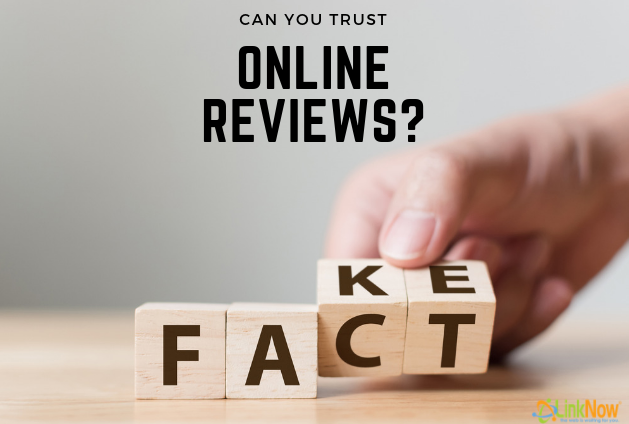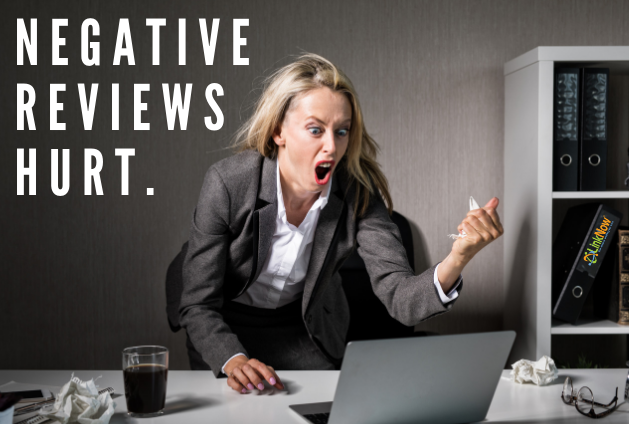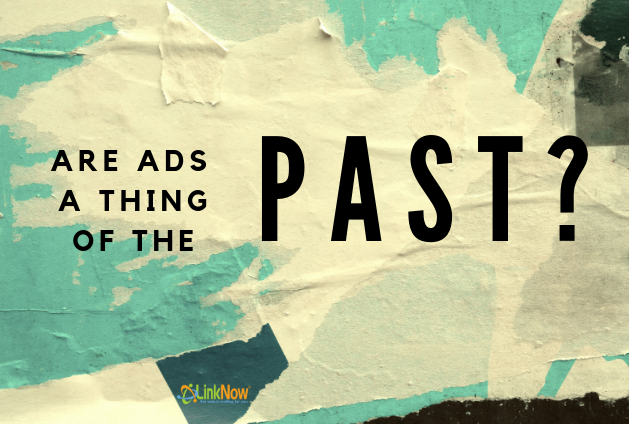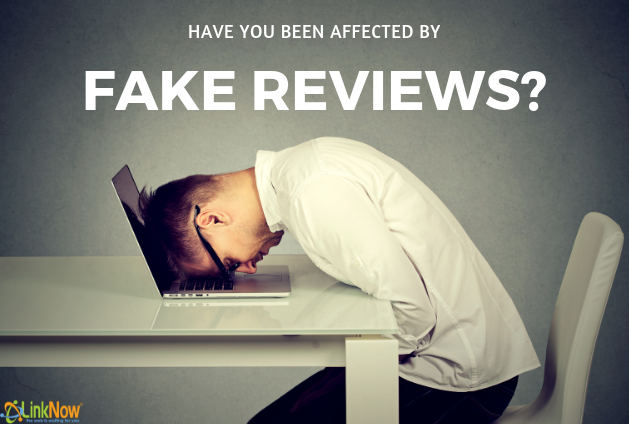
Being a consumer has never been easier—and more deceiving.
Long before booking an appointment, hiring a tradesman, or ordering a meal, prospective buyers can gleefully browse through pages of listed companies offering exactly what they want.
They’ll find much more than just the basics of the business— locations, rates, contact info.
By way of the Internet, consumers can now scrutinize a company’s reputation in the form of online reviews. They’ve used the services, purchased the products, and have now gone to the trouble of reviewing their experience.
But just how trustworthy are online review sites like Google and Yelp?
What Are Fake Reviews?
As the name suggests, fake reviews are inaccurate, slanderous depictions of a business.
Fake reviews usually come in two forms. Either, they are positive reviews designed to artificially inflate a business’s reputation for the better. Or, they are negative reviews left by black hat SEO companies, jealous competitors, or disgruntled employees aiming to ruin a business’ reputation.
Fake reviews are misleading at best, and at worst, can ruin a business both on and offline.
Do Review Websites Try to Fight Fake Reviews?
Fortunately for businesses and consumers alike, review aggregators like Google and Yelp are several steps ahead of these dishonest keyboard warriors. These market giants are coming up with increasingly clever ways to detect and remove fake reviews.
It is, after all, in their interest to show only trustworthy reviews. If consumers couldn’t trust the reviews, they simply wouldn’t use the site. If consumers are checking reviews to figure out whether a business is trustworthy, the review site itself better be trustworthy too!
How Does Google Deal With Fake Reviews?
In the spring of 2018, Google began systematically removing all anonymous reviews from Google My Business. The idea behind the move was that anonymous reviews were more likely to be untrustworthy.
Of course, not all the anonymous reviews were fake—and there was a backlash because of it. But since reputation management is something we’re concerned with at LinkNow Media, we think this was definitely a move in the right direction. If you’d like to learn more about, you can read our article on it.
If you are a business owner, Google is unlikely to remove a review unless there is clear evidence of spam patterns. The Google My Business forum is a resource for business owners who feel that a review has been inaccurate. It’s generally a long process and one that will require a significant amount of evidence, simply because no one likes negative reviews. If you can’t lay out clear evidence of being spammed by fake reviews, Google must assume that the reviews have been left by real customers.
How Does Yelp Deal With Fake Reviews?
What sets the Yelp reviews apart from Google, is that Yelp has built an algorithm that’s designed to weed out untrustworthy reviews before they are displayed on a listing.
The algorithm decides whether a review should be recommended or not recommended. If it is recommended, it ends up as part of the total rating that’s visible on every business’ Yelp profile. If it is deemed untrustworthy, the review will end up in the ‘Not currently recommended’ section of the business listing. These reviews are still visible to the public, but you have to scroll to the bottom of the page and follow a series of links that lead to them. They are hidden.
Yelp determines whether or not a review is trustworthy based on a number of criteria. While that criteria is kept under wraps, it’s possible to make some educated guesses about what goes into it:
- When did the reviewer sign up for Yelp?
- How active is the reviewer?
- How many reviews do they have?
- What kinds of reviews have they left?
Notice that most of these are related to activity on Yelp. Yelp is a social media platform and they generate profit by having active users.
This is why, as a business owner, Yelp can be challenging to work with. If your clients are not active Yelp users, their reviews may not appear in the recommended section.
At LinkNow Media, we’re very familiar with this side of Yelp. Being a B2B online digital marketing agency, the LinkNow Media reviews are particularly susceptible to having our client’s reviews end up in the ‘Not currently recommended’ section. If you want to see over a hundred hidden 5-star LinkNow reviews, take a look at our Yelp profile!
All things considered, Yelp is making every attempt at limiting fake reviews. And this is something that’s needed to protect business’ online reputation and give consumers the information they need to make good purchasing decisions.
Yelp also enforces consequences when they find that businesses have left fake reviews on their own or their competitor’s profiles. Yelp issues ranking penalties and monitors listings for more fake reviews in the future. They can even go so far as to remove the listing altogether.
Yelp also has what they call a “don’t ask” policy aimed. This policy is designed to punish businesses that offer discounts or other incentives in exchange for positive client reviews. For Yelp, it doesn’t matter whether the client has or has not had a real experience with the business. If clients are not willingly choosing to leave the review, the review can’t be trusted.
How Businesses Are Taking Action Against Fake Reviews
Regardless of Google and Yelp’s activities, business owners can take control of fake reviews. The best way to go about this is through professional, well-mannered replies outlining the inaccuracy of these reviews.
No business wants a bad review. Discerning between negative but truthful and an inaccurate review is no easy task, for humans or algorithms— especially given the emotionally-laden tone of many reviews.
As an SEO company specializing in managing online reputations and reviews, LinkNow Media is constantly following Google and Yelp’s review policies. So, if you have any questions regarding fake reviews on your business listing, feel free to give us a call. Our reputation management experts in the SEO department will be happy to answer any of your questions!










